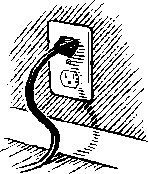My literary agent, Amanda Mecke, sent me an article with the same title as this blog post. The essence of it is the following quotations:
"While the United States is still debating whether to build a more efficient kind of coal-fired power plant that uses extremely hot steam, China has begun building such plants at a rate of one a month."
"With greater efficiency, a power plant burns less coal and emits less carbon dioxide for each unit of electricity it generates. Experts say the least efficient plants in China today convert 27 to 36 percent of the energy in coal into electricity. The most efficient plants achieve an efficiency as high as 44 percent, meaning they can cut global warming emissions by more than a third compared with the weakest plants."
What they are talking about is supercritical (extremely hot steam) coal fired plants and the quotations are true. I am currently, personally involved in financing two of these plants in the United States. The problem is twofold: (1) The Congress has put a moratorium on the financing of Coal Fired Plants by the Department of Agriculture's Rural Utility Service. This prevents Rural Ekectric Cooperatives in this country from accessing government loans to build these coal fired plants. That's why I am involved, providing private funds to finance what the government (led by Harry Waxman) will not. (2) Most of those in the government making these decisions do not know the difference between a conventional coal fired plant and a supercritical one.
The average coal unit in the U.S. has about a 33% efficiency. Increasing efficiencies to 44%, as the article states, would eliminate one third of all of the carbon dioxide emitted by the existing coal plant fleet.
That means we can have it all: Coal fired power plants with less pollutants across the board. All we need in our government is knowledge, reason, cooperation and less dogma from radical environmentalists. This can transition the U.S. over a reasonable period of time to non-polluting (or much less polluting) technologies.
Sunday, May 17, 2009
China Outpaces U.S. in Cleaner Coal-Fired Plants
Subscribe to:
Post Comments (Atom)




No comments:
Post a Comment